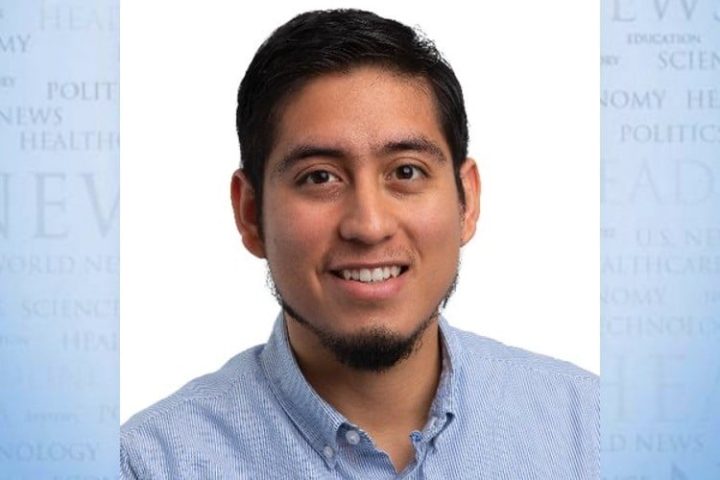
We often talk of defending our freedoms. But how much is truly left to defend?
The news on Monday of the death of Boeing whistleblower John Barnett from a supposedly self-inflicted gunshot wound prompted public outcry, with allegations that Barnett was “Epsteined” (that is, murdered in a matter made to appear like suicide) going viral on social media.
Barnett, who worked for more than three decades at the aircraft manufacturer, revealed in 2017 that overworked employees at the South Carolina plant often installed below-par parts on aircraft and raised concerns about faulty oxygen systems, which could lead to as many as 25 percent of oxygen masks malfunctioning. His death comes as Boeing is under investigation following a blowout on one of its planes.
The complete truth of John Barnet’s fate is as unlikely to ever be known as Jeffrey Epstein’s. But the tragic death of the Boeing whistleblower, and the resultant public unease and skepticism, highlight the increasing awareness that the country’s most powerful forces are seemingly able to get away with crimes as heinous as murder with total impunity.
If we live in a system in which those in power can freely defy the rule of law and dispose of the lives of those who oppose their interests, can we truly consider ourselves to be in a constitutional republic any longer?
While American conservatives rightly warn of a descent into dictatorship if current trends are not reversed, the reality is that dictatorship has already arrived, even if the ruling regime avoids using that term.
Many Americans have a false sense of security because dictatorship in the United States does not abide by the typical image of dictatorship conjured by popular media. There is no single identifiable dictator whose face is plastered everywhere and to whom the people pay obeisance. There is no Stalin or Hitler or Mao or Kim.
But writing America off as free simply due to the lack of such a strongman is simplistic and naive; a regime does not need to have a cult of personality to be a dictatorship.
In fact, while the cult of dictatorship centered around a charismatic leader is often the way a dictatorial regime gets its start, following that leader’s death, most dictatorships discard that setup in favor of one in which a committee of oligarchs runs the show. There may still be a figurehead, but he answers to the committee, not the other way around.
This is what happened to the Soviet Union after Stalin’s death and to China after Mao. North Korea, where the Kim dynasty retains generational totalitarian power, is the exception, not the rule.
Modern-day China demonstrates the subtle way in which a regime can give its people the veneer of freedom while retaining absolute power. Contemporary China has adopted many hallmarks of Western civilization; for example, allowing “private” businesses to operate within its borders.
Outside observers, of course, recognize the charade. Chinese corporations, media, and other institutions may not be formally owned by the government, but they ultimately respond to the state and cannot act against it without risking consequences ranging from financial punishment to imprisonment to assassination.
The deception in the United States is of a higher level. Whereas in China only the Communist Party dominates, the regime in America gives citizens the illusion of choice and freedom by having two parties.
Recently, I authored a piece in which I detailed Mexico’s Marxist history and quoted Peruvian novelist Mario Vargas’ Llosa’s famous description of Mexico as “the perfect dictatorship.”
Vargas Llosa based his assessment on the uniparty rule of the left-wing party PRI (Institutional Revolutionary Party) in the ‘90s. He characterized Mexico as a “dictatorship camouflaged in such a way that it may not seem like a dictatorship,” noting that the PRI establishment even went to great lengths to pay public intellectuals to be critical of the state in order to give an appearance of free speech, even while it suppressed opinions that truly posed a threat.
Does any of this sound familiar? If anything, it can be said that Vargas Llosa was incorrect in calling Mexico the perfect dictatorship when that title rightfully belongs to the United States. In America, there is not one-party dominance as Mexico had, but a two-party system that provides a false comfort. The people believe that voting Republican or Democrat will be the solution to all their problems, but things stay the same no matter who is “in power” — for both parties answer to the same masters.
While we might pride ourselves on being a free society, the reality is that America has already enshrined several of Karl Marx’s 10 planks of a communist state, as described in The Communist Manifesto. These include heavy progressive or graduated income tax; centralization of credit in the hands of the state, by means of a national bank with state capital and an exclusive monopoly; free education for all children in public schools; and abolition of all rights of inheritance.
Liberty, then, is not something to merely be defended, but restored.



